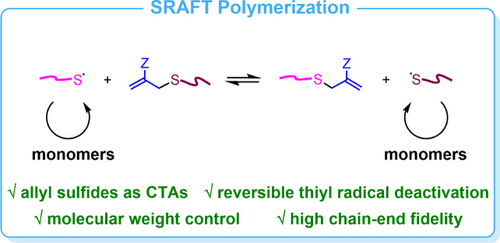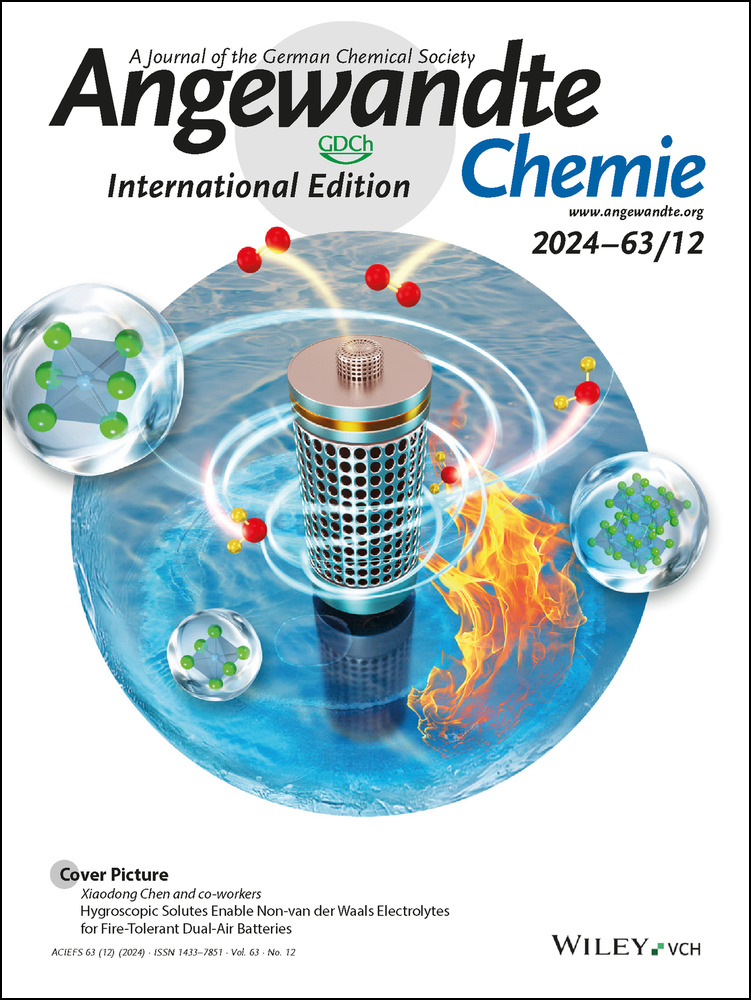Reversible Thiyl Radical Addition−Fragmentation Chain Transfer Polymerization
Graphical Abstract
Abstract
Developing reversible-deactivation radical polymerization (RDRP) methods that could directly control the thiyl radical propagation is highly desirable yet remains challenging in modern polymer chemistry. Here, we reported the first reversible thiyl radical addition-fragmentation chain transfer (SRAFT) polymerization strategy, which utilizes allyl sulfides as chain transfer agents for reversibly deactivating the propagating thiyl radicals, thus allowing us to directly control a challenging thiyl radical chain polymerization to afford polymers with well-defined architectures. A linear dependence of molecular weight on conversion, high chain-end fidelity, and efficient chain extension proved good controllability of the polymerization. In addition, density functional theory calculations provided insight into the reversible deactivation ability of allyl sulfides. The SRAFT strategy developed in this work represents a promising platform for discovering new controlled polymerizations based on thiyl radical chemistry.
Open Research
Data Availability Statement
The data that support the findings of this study are available in the supplementary material of this article.





